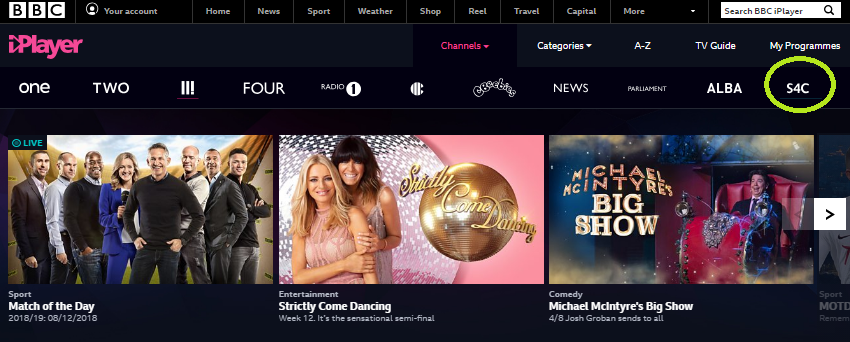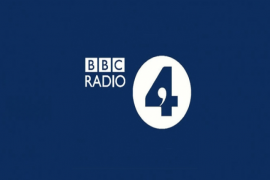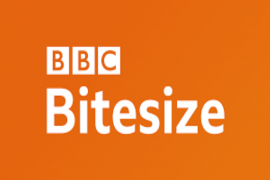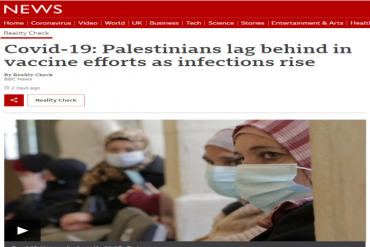As we have documented in the past, for the last nine months the BBC has studiously avoided the issue of the allegations of serious ethical abuses at the highest levels of UNRWA, the subsequent resignation of its commissioner-general and the appointment of a replacement.
On April 29th that self-censorship ostensibly came to an end with an item presented to listeners to the BBC World Service radio programme ‘Newshour’ as follows:
“…the newly appointed head of UNRWA discusses their efforts to both control Covid 19 in Palestinian refugee camps and regain trust with the Trump administration which defunded them.”
Philippe Lazzarini was actually appointed on March 19th.
The interview (from 33:59 here) was introduced by presenter James Coomarasamy. [emphasis in italics in the original]
Coomarasamy: “Well one of the major international organisations that helps Palestinians in the region is the UN agency UNRWA which runs schools in refugee camps and provides community services. But even before the pandemic it’s had a tough few years. The United States suspended its annual $360 million donation to an organisation it’s accused of anti-Israel bias and there’ve been accusations of financial mismanagement within UNRWA. Quite a backdrop for the arrival in post this week of a new UNRWA commissioner-general, Philippe Lazzarini. From his base in East Jerusalem, the new boss told me about UNRWA’s response to the pandemic.”
Listeners were not informed why UNRWA has been accused of anti-Israel bias or of the real background to the US decision to defund the organisation. Particularly notable given the BBC’s previous failure to report the story is Coomarasamy’s misleading portrayal of what was reported by AP at the time as allegations of senior management engaging in “sexual misconduct, nepotism, retaliation, discrimination and other abuses of authority, for personal gain, to suppress legitimate dissent, and to otherwise achieve their personal objectives” as “financial mismanagement”.
Unchallenged by his host, Lazzarini began by crediting the relatively low number of cases of Covid-19 among Palestinian refugees to his own organisation.
Lazzarini: “So far it has been successful. If I look in our Palestinian camps in Syria, in Jordan, in the West Bank, in Gaza and in Lebanon, in total we have [unintelligible] about 60 cases. So this is thanks to the awareness effort of UNRWA as an organisation but also because of its way of adjusting its way of operating.”
Coomarasamy went on to claim that the allegations against senior UNRWA staff “weren’t proved” even though the investigating body did say that its preliminary investigation raised “management issues”.
Coomarasamy: “Anyone taking over a new job at a time like this has a huge challenge but of course you come into the post at a time when UNRWA has lost its huge $360 million a year funding from the United States – that’s still an issue you need to deal with – and your predecessor of course resigned and there were accusations of mismanagement – that weren’t proved – ahm…what…what kind of a challenge are you facing?”
Lazzarini: “There are huge financial challenges the organisation is confronted with. There are reputational challenges and sometimes also its relevancy is also questioned by a number of people. And all this is taking place at a time the needs of the Palestinian refugees are increasing and – with the Covid-19 – and at the time the financial challenges might even become more difficult.”
Failing to take that opportunity to provide listeners with any information which would help them understand those “reputational challenges” and why UNRWA’s “relevancy” is questioned, Coomarasamy refocused audience attentions on the two-year old story of US defunding.
Coomarasamy: “How do you get over that? How do you rebuild bridges for example with the Trump administration?”
Lazzarini: “Listen, I have to rebuild the trust. There have been a huge political support at the time of the renewal of the UNRWA mandate last December and my task will be to translate this political support into matching resources. And I want to also to portray UNRWA in the future as being part of the solution in the region and definitely not as part of the problem.”
Coomarasamy: “Well how do you go about changing an impression in both Israel and the United States that UNRWA has been essentially an anti-Israeli organisation?”
Lazzarini: “You have to focus on the mandate. You have to focus on delivering education for all, to focus on health and in a certain extent, bringing UNRWA mandate into the broader agenda – the famous Agenda 2030 – saying we have to leave no-one behind, we are building the future generation of this region and investing in UNRWA you invest in peace and security.”
Listeners heard no challenge to those talking points and nothing whatsoever about relevant issues such as UNRWA’s links to extremism and its perpetuation and inflation of the Palestinian refugee issue.
Coomarasamy: “…And how positive, how optimistic are you? You say that the world, the UN, backed UNRWA with this new mandate but we’ve also talked about some of the big challenges you face. What would you consider a success?”
Lazzarini: “I think the first success will for the organisation to be able to maintain all its activities here in the region.”
Coomarasamy: “And can you keep those without getting back the American money?”
Lazzarini: “I mean so far all the services have been maintained. There have been other countries having shown solidarity and step in at the time of the US defunding. But I do not [unintelligible] that sooner or later additional funding, additional support be provided to the organisation. I took up this challenge in believing we can address it.”
While a prime focus of this soft-ball interview was resurrection of the two year-old topic (more than generously covered by the BBC at the time) of US withdrawal of funding from UNRWA, its main purpose was obviously to provide Lazzarini with a comfortable platform for unchallenged amplification for his organisation’s talking points. For years the BBC has refrained from holding UNRWA to account or reporting accurately and impartially about the controversial agency. Apparently the scandal that prompted the resignation of Lazzarini’s predecessor – which the BBC managed to completely ignore for nine whole months – has not affected that editorial policy.
Related Articles:
BBC ignores UNRWA ethical abuses story
BBC News maintains its silence on the UNRWA ethical abuses story
One month on, BBC silence on UNRWA allegations persists
BBC News silence on eight-month-old story continues
Documenting BBC amplification of an UNRWA campaign





